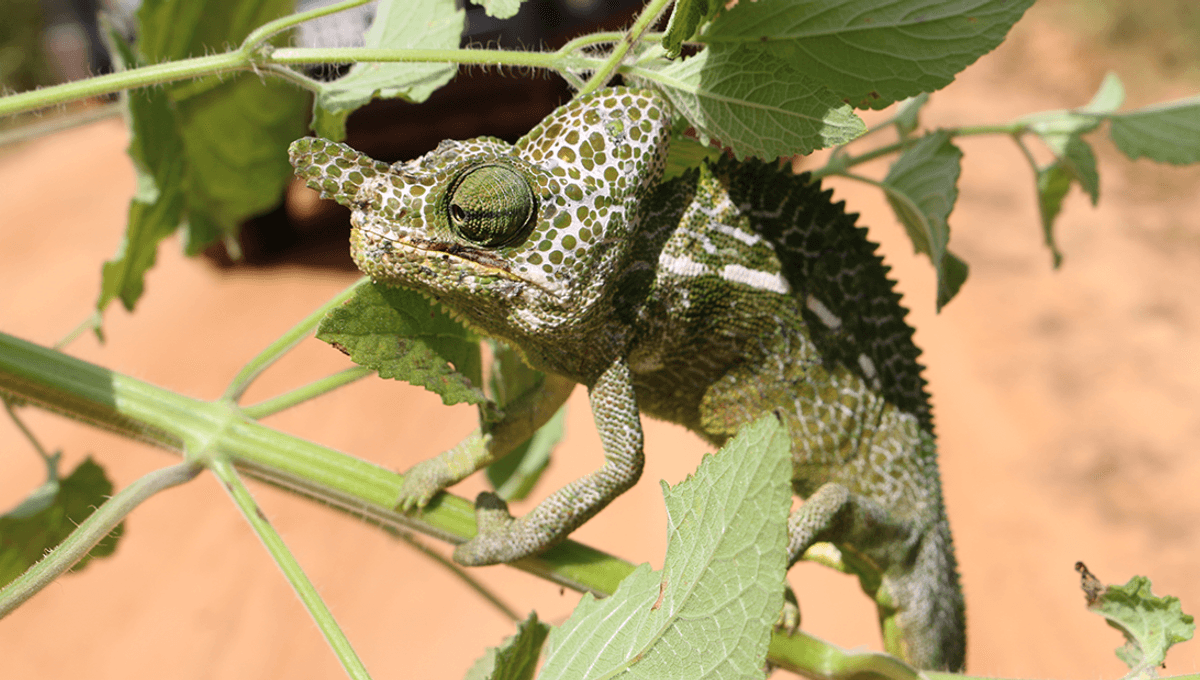
In the lowlands of southwestern Madagascar there is, and sometimes isn’t, a lizard known as Labord’s chameleon (Furcifer labordi) with an unusual life cycle. The chameleons, as pointed out by UK fun fact podcast No Such Thing As A Fish, are functionally extinct for several months of the year, with no adults alive (as far as we are aware).
Labord’s chameleons begin their life hatching in synchronicity at the beginning of the rainy season in November.
“Early life of this chameleon is characterized by fast growth, resulting in sexual maturity at less than two months of age,” a 2017 paper on the lizards explains. “After mating, senescent decline becomes apparent, and by the end of the rainy season in March, a population wide die-off of both sexes occurs.”
For the females, this happens shortly after they have buried their eggs to keep them safe during the dry season from April til October.
“The females put all their energy into producing eggs that need to get through the long drought while underground,” Valeria Fabbri-Kennedy and Chris Raxworthy, a herpetologist at the American Museum of Natural History, told Live Science. “They die within just a few hours of having laid them, as they have few resources left.”
Before they die though, the females can put on a spectacular color-changing display.
Their unusual lifespan allows them to survive the hot season, essentially by skipping it, spending that time as an egg.
“With an incubation period of 8–9 month, F. labordi spend the majority of their lifetime as a developing embryo in the egg, probably as an adaption to the highly seasonal climate,” the paper added.
The timings of the die-off vary by region in Madagascar, and by how long the wet season is. In warmer wet seasons, adults may live a little longer. After one unusually long wet season, one female has even been found to survive to see another breeding season, and researchers have kept males alive too by keeping them in cages under favorable conditions. But since the animals die after reproducing, and spend several months incubating, for several months a year the species is essentially extinct, with no adult specimens in the wild, only eggs.
[H/T: No Such Thing As A Fish]
Source Link: The Madagascan Chameleon That Goes "Extinct" For A Few Months Every Year